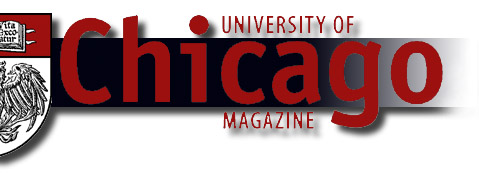 |

When Baltimore
Oriole Roberto Alomar spit on an umpire during a major-league game
last fall, he not only made the next day's sports pages but also
the pages of a blue-ribbon panel's report on civility.
Jean Bethke
Elshtain, the Laura Spelman Rockefeller professor in the Divinity
School, chairs the Council on Civil Society, a joint project of
the Divinity School and the New York-based Institute for American
Values. Over the past two years, the nonpartisan council-24 prominent
scholars, politicians, and activists, including Harvard professor
Cornel West and Senators Dan Coats, R-Ind., and Joseph Lieberman,
D-Conn.-has been assessing the state of the nation's moral conscience.
In its first
report, "A Call to Civil Society: Why Democracy Needs Moral Truths,"
the council cites Alomar's crudeness as just one public example
of what it fears is a growing incivility among Americans. Defining
"civil society" as the "relationships and institutions that are
neither created nor controlled by the state," such as PTAs and churches,
whose purpose is to "foster competence and character in individuals,
build social trust, and help children become good people and good
citizens," the report reaches a sobering conclusion: "Our democracy
is growing weaker because we are using up, but not replenishing,
the civic and moral resources that make our democracy possible."
Besides citing
broad social trends-like a high national rate of divorce, poor school
systems, and pervasive consumerism-as probable causes of a civil-society
breakdown, the council makes 41 recommendations for how Americans
can get off what it cautions is a self-destructive road. For Elshtain,
the most important recommendations concern children, education,
and commerce. She supports family-friendly changes in the tax code,
strong civics instruction in primary and secondary schools, and
flexible workplace arrangements. Elshtain hopes the attention drawn
by the report, which has spurred articles in the New York Times,
Washington Post, and other major papers since its release in May,
will spark public debate over not just what social policies should
be enacted but also over what principles should guide them. She
advocates that communities perform "civil-society impact studies"
to analyze, for example, the effects of a new sports stadium on
families and children-in much the same way that an environmental-impact
study might look at the stadium's effects on soil and water quality.
"A river will
clean itself for a while but eventually its system will collapse
if nothing is done to stop the ill use," she says. "Social environments
work in a similar way. You won't see the effects of destructive
individual actions for a long time-until the system starts to crash.
To forestall those kind of catastrophes, we need to think about
how we act as members of a community-we've lost sight of the fact
that every right entails responsibilities."
Elshtain says
the council plans to revisit the report in six months to determine
which recommendations have the best chances for implementation.
She isn't looking for one dramatic overnight transformation of society,
she says, but rather for changes on a smaller scale, changes that
may make "one street safer." And Elshtain is confident change is
possible, noting, "I think most folks know the truth of our conclusions
deep down."-C.S.
|



